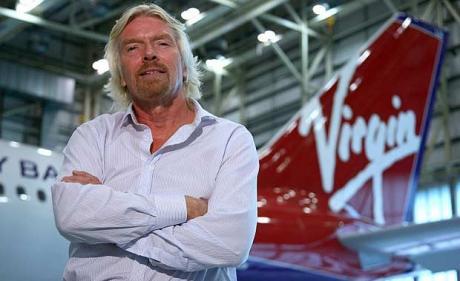Excerpts from Dale Carnegie's
inspiring Book
Compiled by Richard Anthony
Six Ways To Make People Like You
Become genuinely interested in other people.
Smile.
Remember that a man's name is to him the sweetest and most important sound in the English language.
Be a good listener. Encourage others to talk about themselves.
Talk in terms of the other man's interest.
Make people feel important, and do it sincerely.
Twelve Ways Of Winning People To Your Way Of Thinking
The only way to get the best of an argument is to avoid it.
Show respect for the other man's opinions. Never tell a man he is wrong.
If you are wrong, admit it quickly and emphatically.
Begin in a friendly way.
Get people saying "yes, yes" immediately.
Let other people do a great deal of talking.
Let other people feel that the idea is theirs.
Try honestly to see things from the other man's point of view.
Be sympathetic with other people's ideas and desires.
Appeal to the nobler motives.
Dramatize your ideas.
Throw down a challenge.
Nine Ways To Change People Without Giving Offense Or Arousing Resentment
Begin with praise and honest appreciation.
Call attention to people's mistakes indirectly.
Talk about your own mistakes before criticizing the other man.
Ask questions instead of giving direct orders.
Let the other man save face.
Praise the slightest improvement and praise every improvement.
Give people a fine reputation to live up to.
Use encouragement. Make the fault seem easy to correct.
Make other people happy about doing the thing you suggest.
Fourteen Rules For Making Your Home Life Easier
Don't nag.
Don't try to make your partner over.
Don't criticize.
Give honest appreciation.
Pay little attentions.
Be courteous.
Don't criticize her before others.
Give her money to spend as she chooses.
Help her through her feminine moods of fatigue, nerves, and irritability.
Share at least half of your recreation time with your wife.
Keep alert to praise her and express your admiration for her.
Thank her for the little jobs she does for you.
Dress with an eye for your mate's likes and dislikes in color and style.
Compromise little differences of opinion in the interest of harmony.
Notes
Criticism is futile because it puts a man on the defensive, and usually
makes him strive to justify himself. Criticism is dangerous, because it
wound's a man's pride, hurts his sense of importance, and arouses his
resentment. When someone speaks harshly of people, say, "Don't criticize
them; they are just what we would be under similar circumstances."
When dealing with people, let us remember we are not dealing with
creatures of logic. We are dealing with creatures of emotions, creatures
bristling with prejudices and motivated by pride and vanity. "I will
speak ill of no man, and speak all the good I know of everybody" -
Benjamin Franklin, became American Ambassador to France. It takes
character and self-control to be understanding and forgiving. "A great
man shows his greatness by the way he treats little men" - Carlyle.
The deepest urge in human nature is the desire to be important. Many
people who go insane find in insanity a feeling of importance that they
were unable to achieve in reality. They have found in a dream world of
their own creation the feeling of importance which they so deeply
desired. If some people are so hungry for a feeling of importance that
they actually go insane to get it, imagine what miracles we can achieve
by giving people honest appreciation.
Almost Everybody Wants...
Health and the preservation of life.
Food.
Sleep.
Money and the things money can buy.
Life in the hereafter.
Sexual gratification.
The well-being of our children.
A feeling of importance.
One of John D. Rockefeller's partners, Edward T. Bedford, lost the firm a
million dollars by a bad buy in South America. John could have
criticized, but he knew Bedford had done his best. Rockefeller found
something to praise; he congratulated Bedford because he had been able
to save sixty percent of the money he had invested. "That's splendid! We
don't always do as well upstairs" said Rockefeller.
“Every man is my superior in some way. In that, I learn of him" - Emerson.
You can make more friends in two months by becoming interested in other
people than you can in two years by trying to get other people
interested in you. Why should people be interested in you unless you are
first interested in them? The road to someone's heart is to talk to
them about the things they treasure most.
Almost every man you meet feels himself superior to you in some way, and
a sure way to his heart is to let him realize in some subtle way that
you recognize his importance in his little world, and recognize it
sincerely.
It isn't what you have or who you are or where you are or what you are
doing that makes you happy or unhappy. It is what you think about. The
first thing to learn in intercourse with others is noninterference with
their own peculiar ways of being happy.
"I'm sorry to trouble you...Would you be so kind as to...Won't you
please...Would you mind...Thank you...This may, perhaps, be worth
thinking of, gentlemen...you might consider this...do you think that
would work? What do you think of this? Maybe if we were to rephrase it
this way it would be better...It so appears to me at present..."
To make a woman fall in love with you, all you have to do is to talk to her about herself!
Everyone is hungering and thirsting for sympathy. Give it to them, and
they will love you. The child eagerly displays his injury, or even
inflicts a cut or bruise in order to reap abundant sympathy. For the
same purpose adults show their bruises, relate their accidents and
illnesses. Self-pity for misfortunes, real or imaginary, is practically a
universal practice.
"Tis not love's goings hurts my days, but that it went in little ways."
Why prove to a man he is wrong? Is that going to make him like you? Why
not let him save face? He didn't ask for your opinion. He didn't want
it. Why argue with him? You can't win an argument, because if you lose,
you lose it; and if you win it, you lose it. Why? You will feel fine.
But what about him? You have made him feel inferior, you hurt his pride,
insult his intelligence, his judgment, and his self-respect, and he'll
resent your triumph. That will make him strike back, but it will never
make him want to change his mind. "A man convinced against his will is
of the same opinion still."
If you want enemies, excel your friends; but if you want friends, let
your friends excel you. When our friends excel us, that gives them a
feeling of importance, but when we excel them, that gives them a feeling
of inferiority and arouses envy and jealousy.
In talking with people, don't begin by discussing the things on which
you differ, but emphasize the things which we agree. Keep emphasizing
that you are both striving for the same end and our only difference is
one of method and not of purpose. Remember the other man may be totally
wrong, but he doesn't think so. Don't condemn him, any fool can do that.
Try to understand him.
"I don't blame you at all. If I were you, I should undoubtedly feel just
as you do." An answer like that will soften the most cantankerous old
cuss alive.
Examples
How to influence people
The only way to influence the other fellow is to talk about what he
wants and show him how to get it. If, for example, you don't want your
son to smoke, don't preach at him, and don't talk about what you want;
but show him that cigarette's may keep him from making the baseball team
or winning the hundred-yard dash.
Ralph Waldo Emerson and his son one day tried to get a calf into the
barn, but they made the common mistake of thinking only of what they
wanted. Emerson pushed and his son pulled. But the calf did just what
they did; he thought only of what he wanted; so he stiffened his legs
and stubbornly refused to leave the pasture. The Irish housemaid saw
their predicament. She thought of what the calf wanted; so she put her
maternal finger in the calf's mouth, and let the calf suck her finger as
she gently led him into the barn.
Andrew Carnegie's sister-in-law was worried sick over her two boys. They
were at Yale, and they were so busy with their own affairs that they
neglected to write home and paid no attention whatever to their mother's
frantic letters. Carnegie offered to wager a hundred dollars that he
could get an answer by return mail, without even asking for it! Someone
called his bet; so he wrote his nephews a chatty letter, mentioning
casually in a postscript that he was sending each one a five-dollar
bill. He neglected, however, to enclose the money. That did the trick.
Back came the replies by return mail thanking "Dear Uncle Andrew" for
his kind note and ...you can finish the sentence yourself.
The next time you want to persuade someone to do something, before you speak, pause and ask, "How can I make him
want to do it?" Get the other man's point of view and see things from his angle as well as from his own.
Avoid Arguments
(If you're a Ford salesman) When someone says, "What? Ford's cars are no
good! I wouldn't take one if you gave it to me. I'm going to get
Chevrolet cars." Say, "Brother, listen, Chevrolet's cars are good cars.
Their cars are made by a fine company and sold by good people." He's
speechless then. There's no room for an argument. If he says Chevrolet's
cars are the best and I say sure it is, he has to stop. Just agree with
him. He can't go on all afternoon when I'm agreeing with him. We then
get off the subject of Chevrolet's cars and I begin to talk about the
good points of Ford's cars.
Never tell a man he is Wrong
If a man makes a statement that you think, or know, is wrong, begin by
saying, "Well, I thought otherwise, but I may be wrong. I frequently am.
Let's examine the facts." You'll never get into trouble by admitting
you may be wrong. That'll stop all arguments and inspire the other
fellow to be just as fair and broad-minded as you are. It'll make him
want to admit that he, too, may be wrong.
We sometimes find ourselves changing our minds without any resistance or
heavy emotion, but if we are told we are wrong, we resent the
imputation and harden our hearts. We are incredibly heedless in the
formation of our beliefs, but find ourselves filled with an illicit
passion for them when anyone proposes to rob us of their companionship.
It is not the ideas themselves that are dear to us, but our self-esteem
which is threatened. We like to continue to believe what we have been
accustomed to accept as true and the resentment aroused when doubt is
cast upon any of our assumptions lead us to seek every manner of excuse
for clinging to it. The result is that most of our so-called reasoning
consists in finding arguments for going on believing as we already do.
When we are wrong, we may admit it to ourselves. And if we are handled
gently and tactfully, we may admit it to others and even take pride in
our frankness and broadmindedness. But not if someone else is trying to
ram the fact down our throat.
Raised Rent
When one was informed he had to pay 3 times as much rent as formerly. "I
was a bit shocked when I got your letter, but I don't blame you at all.
If I had been in your position, I should probably have written a
similar letter myself. Your duty as the manager is to make all the
profit possible. Now, let's take a price of paper and write down the
advantages and disadvantages that will accrue to you, if you insist on
this increase in rent."
Advantages: You'll have the advantage of having the ballroom free to
rent for dances and conventions, for affairs like that will pay you more
than I can. Disadvantages: First, instead of increasing your income
from me, you're going to decrease it. In fact, you're going to wipe it
out because I cannot pay the rent you are asking. I shall be forced to
go to another location. There's another disadvantage to you also. These
lectures attract crowds of educated and cultured people to your hotel.
That's good advertising for you, isn't it? In fact, if you spent $5,000
advertising in the newspapers, you couldn't bring as many people to look
at your hotel as I can bring by these lectures. That is worth a lot to a
hotel, isn't it?"
Kids
When 3 year old refused to eat. A bully next door kept knocking him off
his tricycle. He was told if he eats his food, he could wallop the
daylights out of the bigger kid someday. When he wet his bed, he was
wearing a nightgown in his Grandma's bed. He wanted pajamas like Dad and
his own bed. So, when he got them, he promised not to wet the bed
because his pride was involved. He wanted to act like a man, so he did. A
3 year old daughter wouldn't eat breakfast. She loved to imitate her
Mom. So, one morning they let her cook breakfast and she ate it, because
she was interested in it, she achieved a feeling of importance, and
found an avenue of self-expression.
Be a good listener. Encourage others to talk about themselves
When someone returns at item to you, listen to their story from
beginning to end without saying a word. Then say, "what would you like
me to do with this product? I'll do anything you say. If it isn't
satisfactory we'll give you one that is. We are sorry to have caused you
this inconvenience."
A customer denied owing 15 dollars. After getting letters from credit
department, he went to the manager and said not only is he not going to
pay the bill, but he won't but anything else from them again. The
manager listened patiently to all he had to say without interrupting
him. Then said, "I want to thank you for coming to me to tell me about
this. You have done me a great favor, for if our credit department has
annoyed you, it may annoy other good customers. Believe me, I am far
more eager to hear this than you are to tell it. We'll wipe off the 15
dollar charge, because you are a very careful man with only one account
to look after, while we have to look after many. Therefore, you are less
likely to be wrong than we are."
If you are wrong, admit it quickly and emphatically
When an officer warned someone about not putting his dog on a leash, and
he was caught again, he didn't wait for the officer to start speaking,
he beat him to it with, "Officer, you've caught me red-handed. I'm
guilty. I have no excuses." Officer might say, "Well now, I know it's a
temptation to let a dog run around when nobody's around." "Sure it's a
temptation, but it's against the law." "Well, a little dog like that
isn't going to harm anybody." No, but it might kill squirrels." "Well, I
think you're taking this too far. Just let him run over the hill where I
can't see him and we'll forget all about it." The officer wanted a
feeling of importance. So when you begin to condemn yourself, the only
way he could nourish his self-esteem was to show mercy. Isn't it much
easier to listen to self-criticism than to bear condemnation from alien
lips?
An art director delighted to find fault with someone's drawings. He
gloated over his chance to criticize. "If what you say is true, I am at
fault and there is absolutely no excuse for my blunder." The art
director started to defend him! "Yes, you're right. But it's not a
serious mistake. It's only..." "Any mistake may be costly and they are
all irritating.” He started to break in, but he wouldn't let him. "I
should have been more careful. You deserve the best, so I'm going to do
this drawing all over." "No! No!. I wouldn't think of it." The artist's
eagerness to criticize himself took all the fight out of the art
director. Any fool can try to defend his mistakes, but it raises one
above the herd and gives a feeling of nobility to admit one's mistakes.
Robert E. Lee blamed himself and only himself for the failure of
picket's charge. Lee was far too Nobel to blame others. As Picket's
beaten and bloody troops struggled back to Confederate lines, Robert E.
Lee rode out to meet them all alone and said, "All this has been my
fault. I and I alone have lost this battle." Few generals in all history
have had the courage and character to admit that.
During a course in human relations, a class wrote down criticisms to a
certain man to let him see himself as others see him. One man was broken
hearted because he was denounced for being too sure of himself, too
self-centered, too domineering, an egoist, trouble-maker, and a
communist. One of his critics ordered him to get out of class. Instead
of denouncing his critics, he said, "Boys, I certainly am unpopular.
There can be no mistaking that. It huts me to read these comments, but
they are good for me. They have taught me a lesson. I long for friends
just as you do. I want to make people like me. Won't you help me? Won't
you please write me some more criticisms and tell me what I can do to
improve my personality? If you will, I'll try hard, awfully hard, to
change." He wasn't faking, he spoke straight from his own heart; so
naturally he reached the hearts of his critics. The very men who had
denounced him one week earlier were now for him, His soft answer had
turned away wrath.
Begin in a friendly way
Here's a fable about the sun and the wind. They quarreled about which
was the stronger, and the wind said, "I'll prove I am. See that old man
down there with a coat? I bet I can make him take his coat off faster
than you can." So the sun went behind a cloud and the wind blew until it
was almost a tornado, but the harder it blew the tighter the old man
wrapped his coat about him. Finally, the wind calmed down and gave up.
The sun came out from behind the cloud and smiled kindly on the old man.
He mopped his brow and pulled off his coat. The sun then told the wind,
"gentleness and friendliness were always stronger than fury and force."
Friendliness and appreciation can make people change their minds more
readily than storming at them can.
Let the other fellow think the idea is his
Theodore Roosevelt forced through reforms which political bosses
bitterly disliked. Here's how he did it. When an office was to be
filled, he invited the political bosses to make recommendations. If they
chose someone he disagreed with, he'd tell them, "to appoint such a man
would not be good politics, as the public would not approve." Then
they'd make another, and he'd say, "this man will not live up to the
expectations of the public. Find someone more fitting for the post."
When they name the sort of man that Roosevelt would pick, he'd express
gratitude for their assistance, and he'd let them take the credit for
the appointment. He'd tell them that he did these things to please them
and now it was their turn to please him.
A doctor was building an addition and preparing to equip it with the
finest X-ray department in America. He was overwhelmed with salesmen,
each praising his own equipment. But one of them wrote a letter stating,
"Our factory has recently completed a new line of X-ray equipment. They
are not perfect, we know that, and we want to improve them. So we
should be deeply obligated to you if you could find the time to look
them over and give us your ideas about how they can be made more
serviceable to your profession. Knowing how occupied you are, I shall be
glad to send my car for you at any hour you specify."
This doctor never had an X-ray manufacturer seek his advice before. It
made him feel important. The more he studied the equipment the more he
liked it. Nobody tried to sell it to him, he felt the idea of buying
that equipment for the hospital was his own. He sold himself on its
superior qualities and ordered it installed.
Be sympathetic with other people's ideas and desires
Someone made an error in an announcement over the radio and got deluged
with indignant and insulting letters. One in particular was from a woman
who he thought, "Thank God, I am not married to that girl." He was
going to write her a letter stating although he made a mistake in
geography, she made a bigger mistake in common courtesy. But any
hot-headed fool can do that. So he controlled himself, and resolved to
turn her hostility into friendliness. After all, if he were her, he
should undoubtedly feel just as she did. So, he called her up and said:
Him: Mrs. so and so. You wrote me a letter a few weeks ago, and I want to thank you for it.
She: (in a cultured, well-bred tone). To whom have I the honor of speaking?
Him: I am a stranger to you. My name is Dale Carnegie. You
listened to a broadcast I gave about Louisa May Alcott a few Sundays
ago, and I made the unforgivable blunder of saying that she had lived in
New Hampshire. It was a stupid blunder and I want to apologize for it.
It was so nice of you to take the time to write me.
She: I am sorry, Mr. Carnegie, that I wrote as I did. I lost my temper. I must apologize.
Him: No! No! You are not the one to apologize; I am the one to
apologize. Any school child would have known better than to have said
what I have said. I apologized over the air the Sunday following and I
want to apologize to you personally now.
She: I was born in Concord, Massachusetts. My family has been
prominent here for over two centuries and I am very proud of this state.
I was quite distressed when you said she was born in New Hampshire. But
I am really ashamed of that letter.
Him: I assure you that you were not one-tenth as distressed as I
am. My error didn't hurt Massachusetts, but it did hurt me. It is so
seldom that people of your standing and culture take the time to write
people who speak on the radio, and I do hope you will write me again if
you detect an error in my talks.
She: You know, I really like very much the way you have accepted
my criticism, You must be a very good man. I should like to know you you
better.
So, by apologizing and sympathizing with her point of view, he got her
apologizing and sympathizing with his point of view. He had the
satisfaction of controlling his temper, and returning kindness for an
insult.
Dramatize your ideas
A manufacturer of a new rat poison gave dealers a display that included 2 live rats. Sales zoomed to 5X their normal rate.
An auto supply dealer had a display for an indestructible spark plug. It was smashed up and down against a rock. 1000X.
Instead of giving data verbally about a study done on cold cream, open a
suitcase and dump 32 jars of cold cream on top of a desk, and on each
cold jar have a tag of itemized results that briefly and dramatically
tells its story.
Throw down a challenge
To get a factory to produce and meet their quota when they were lagging
behind, the big boss asked the day shift how many heats they made. They
said "six." Without another word, he chalked a big "6" on the floor and
walked away. The next day, the boss saw the night shift had rubbed out
"6" and replaced it with a "7." So, the night shift thought they were
better than the day shift, huh? They made 10 that day.
Charles Swabb said, "The way to get things done is to stimulate
competition. Not in a sordid, money grabbing way, but in a desire to
excel." The challenge! An infallible way of appealing to men of spirit.
The chance for self-expression. The chance to prove his worth, to excel,
to win. The desire for a feeling of importance.
Begin with praise and honest appreciation
Calvin Cooledge said to his secretary, "That's a pretty dress you are
wearing this morning, and you are a very attractive young woman." It was
so unusual and unexpected, that the girl blushed in confusion. Then he
said, "Now, don't get stuck up. I just said that to make you feel good.
From now on, I wish you would be a little bit more careful with your
punctuation." It is always easier to listen to unpleasant things after
we have heard some praise of our good points.
Talk about your own mistakes before criticizing the other man
When you want to call attention to someone's mistake, say, "You have
made a mistake, but the Lord knows it's no worse than many I have made. I
have been guilty of so many stupid, silly things myself. I have very
little inclination to criticize you or anyone else. But don't you think
it would have been wiser if you had done so and so?"
Let the other man save his face
General Electric had to remove someone from the head of the department.
He was a genius when it came to electricity, but was a washout as the
head of the accounting department. The company didn't want to offend
him, he was indispensable and highly sensitive. So they gave him a new
title of "Consulting Engineer of the General Electric Company." A new
title for work he was already doing. He was happy, and General Electric
let someone else head up the department.
Give people a fine reputation to live up to
Someone hired a servant and told her to report to work, but he
telephoned a former employer and all was not well. When the girl came to
work, he said, "Nellie, I telephoned the other day to a woman you used
to work for. She said you were honest and reliable, a good cook and good
at caring for the children. But she also said you were sloppy and never
kept the house clean. Now, I think she was lying. You dress neatly,
anybody can see that. And I'll bet you keep the house just as neat as
your person. You and I are going to get along fine." And they did.
Nellie had a reputation to live up to and didn't want to be untrue to
his ideal of her.
A servant girl brought Georgette her meals. She was called "Marie the
Dishwasher" because she started her career as a scullery assistant. She
was a kind of monster, cross-eyed, bandy-legged, poor in flesh and
spirit. One day, while she was holding a plate of macaroni, Georgette
said to her point-blank, "Marie, you do not know what treasures are
within you." Accustomed to holding back her emotions, Marie waited a few
moments, not daring to risk the slightest gesture for fear of a
catastrophe. Then she put the dish on the table, sighed, and said
ingenuously, "Madame, I would never have believed it." Then she went
back to the kitchen and repeated what Georgette had said. She began
taking care of her face and body so carefully that her starved youth
seemed to blossom and modestly hid her plainness. Two months later she
announced her coming marriage with the nephew of the chef. "I'm going to
be a lady," she said and thanked Georgette. A small phrase had changed
her entire life.
If you must deal with a crook, there is only one possible way of getting
the better of him. Treat him as if he were an honorable gentleman. Take
it for granted he is on the level. He will be so flattered by such
treatment that he may answer to it, and be proud that someone trusts
him.
Make other people happy about doing the thing you suggest
A mechanic was complaining that the hours were too long, that there was
too much work, and that he needed an assistant. The shop didn't give him
an assistant, or shorter hours or less work, and yet he made the
mechanic happy. How? He was given a private office. His name appeared on
the door, and with it his title "Manager of the Service Department." He
was no longer a repair man to be ordered around, he was now the manager
of a department. He had dignity, recognition, a feeling of importance.
A man had to refuse many invitations to speak from who he was obligated.
He didn't merely say how busy he was. After expressing his appreciation
of the invitation and regretting his inability to accept it, he
suggested a substitute speaker. He didn't give the other man any time to
feel unhappy about the refusal, but had him thinking of some other
speaker he may obtain.
People don't blame Themselves
Dutch Crowley was know as a "cop killer" who would "kill at the drop of a
feather." One day he was necking a girl in a car and a policeman walked
up to the parked car and said, "Let me see your license." Without
saying a word, Crowley drew his gun and cut the policeman down with a
shower of lead. Then he grabbed the officer's gun and shot him again.
Crowley later wrote, "Under my heart is a weary heart, but a kind one -
one that would do nobody any harm."
Crowley was sentenced to the electric chair. When he arrived at the
death house in Sing Sing, did he say, "This is what I get for killing
people?" No, he said, "This is what I get for defending myself." Crowley
didn't blame himself for anything. Al Capone, America's Public Enemy
Number One, regarded himself as an unappreciated and misunderstood
public benefactor. So did Dutch Schultz.
Warden Lawes of Sing Sing said, "Few of the criminals in Sing Sing
regard themselves as bad men. They are just as human as you and I. So
they rationalize, they explain. They can tell you why they had to crack a
safe or be quick on the trigger finger. Most of them attempt by a form
of reasoning, fallacious or logical, to justify their anti-social acts
even to themselves, consequently stoutly maintaining that they should
never have been imprisoned at all.
If these desperate men behind prison walls don't blame themselves for
anything, what about the people with whom you and I come in contact? The
late John Wanamaker once confessed, "I learned thirty years ago that it
is foolish to scold. I have enough trouble overcoming my own
limitations without fretting over the fact that God has not seen fit to
distribute evenly the gift of intelligence."
Source:
ecclesia.org


















